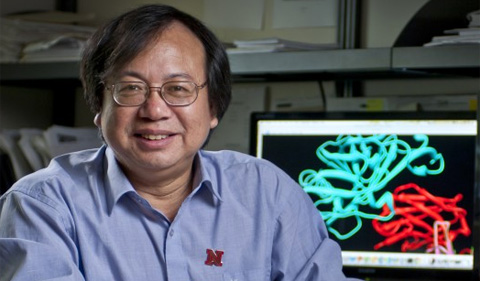
Dr. Jillian L. Dempsey
The Chemistry Colloquium series presents Dr. Jillian Dempsey discussing Proton-Coupled Electron Transfer Processes Underpinning the Production of Renewable Fuels on Sept. 18 at 4:10 p.m. in Clippinger Laboratories 194.
Dempsey is Assistant Professor of Organic Spectroscopy and Solar Energy Conservation at the University of North Carolina, Chapel Hill.
Abstract: The conversion of energy-poor feedstocks like water and carbon dioxide into energy-rich fuels involves multi-electron, multi-proton transformations. In order to develop catalysts that can mediate fuel production with optimum energy efficiency, this complex proton-electron reactivity must be carefully considered. Using a combination of electrochemical methods and time-resolved spectroscopy, we have revealed new details of how molecular catalysts mediate the reduction of protons to dihydrogen and the experimental parameters that dictate catalyst kinetics. While the energy input to drive endergonic fuel-forming reactions is typically supplied indirectly, such as through electricity produced by a solar photovoltaic, we are also exploring excited-state proton-coupled electron transfer reactions that could directly promote catalysis with visible light. This approach represents an energy-efficient mechanism by which solar energy can be captured and converted to chemical energy. Through these studies, we are revealing opportunities to promote, control and modulate the proton-coupled electron transfer reaction pathways of catalysts.



















Comments